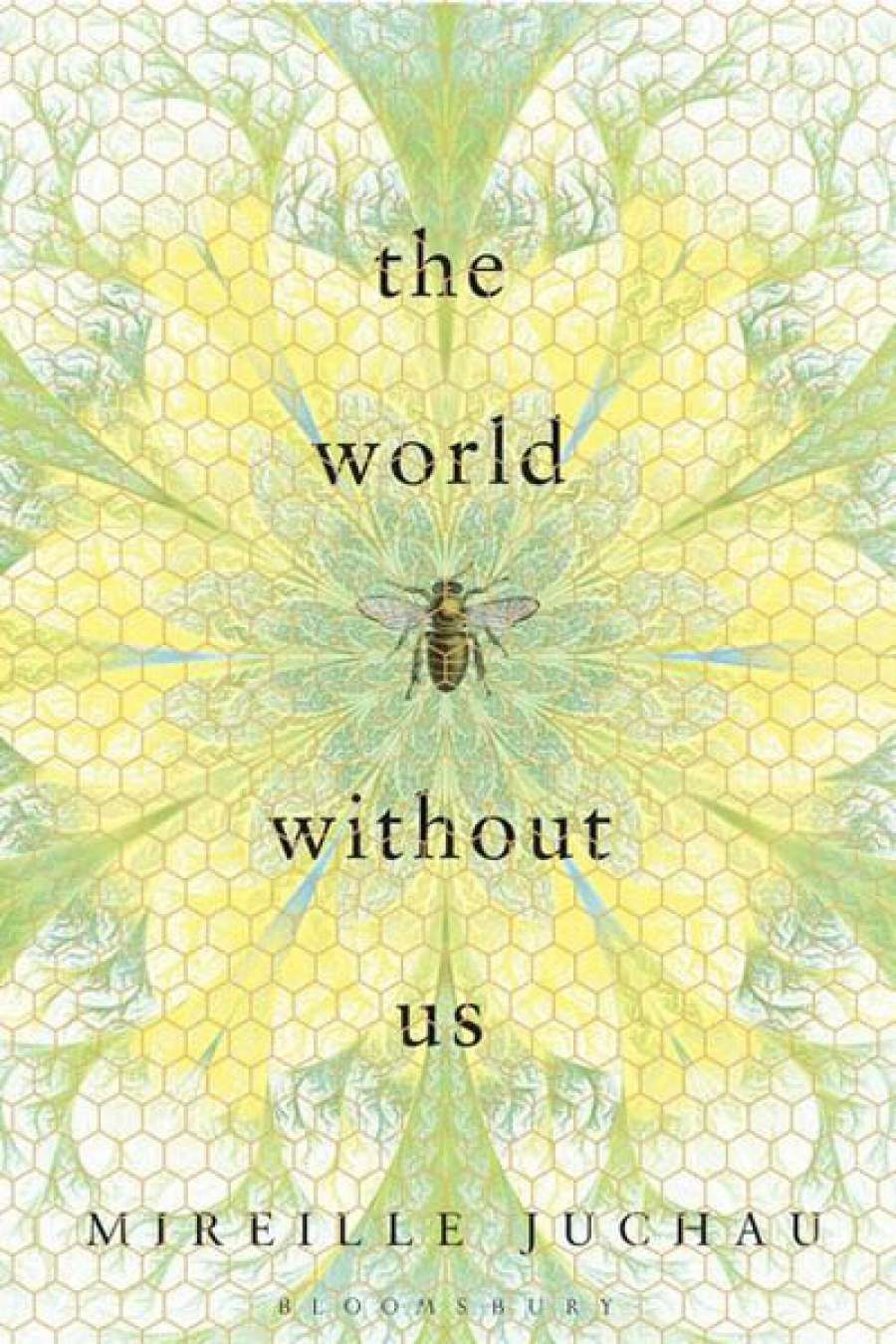
- Free Article: No
- Contents Category: Fiction
- Custom Article Title: Susan Lever reviews 'The World Without Us' by Mireille Juchau
- Book 1 Title: The World Without Us
- Book 1 Biblio: Bloomsbury, $29.99 pb, 293 pp, 9781408866511
Yet Juchau’s novel turns out to be as much about the past as the future. For the most part, its events occur in about 2003, with references to a hippie commune of the 1970s and to the birth of a child character, Tess, in the early 1990s. It ends with Tess at seventeen, around 2009. Its intimations of an imminent natural disaster fade away as it concentrates on the emotional lives of its characters.
When we first encounter them, the Müller family live on a farm in northern New South Wales, where their youngest daughter has died from leukaemia. Each member of the family grieves in a different way, with the mother, Evangeline, close to abandoning her husband and other daughters as she seeks consolation. Tess, the eldest child, has decided not to speak again; her sister, Meg, and father, Stefan, try feebly to hold the family together. There are shadows from the past falling on Evangeline and Tess, particularly the role of an abandoned commune, called the Hive, in their earlier lives. As the novel progresses, aspects of their past are revealed like the rubbing away of mist on a window pane.
While the Müller family and their neighbour, Jim, are at its centre, the novel also maps a wider history for the area. The hippie communes of the 1970s, with their utopian ideas about the collective raising of children, free love, and the possibility of living from the land without harming it, have left a legacy of broken people. Occasionally, Juchau takes a gently satirical view on their legacy: the former leader of the commune now runs a Single Fathers’ Shed that distributes pot. More often, she notes evidence of the Hive’s damage to its children, not only in their limited education but their physical disabilities. One of these children, partly deaf through negligence, now works as the lollipop man at the school crossing, and produces a newsletter warning of the End Days. Others, bearing names such as Rainbow, Bowie, and Comet maintain the hippie spirit as they tree-sit in protest against mining developments in the valley.
 Mireille Juchau
Mireille Juchau
‘From the opening pages of Mireille Juchau’s new novel, The World Without Us, we know we are in the hands of a poetic writer’
It looks like a lost cause. Traditional agriculture appears to be in decline – the disappearing bees are one sign of it – and the Clear Energy mining company has attracted some of the townspeople to work for it. Even Stefan Müller is willing to consider his options on selling to the mining company. The confrontation, though, proves to be little more than a backdrop to the struggle of the central characters to come to terms with their individual grief.
The novel shifts from one character’s perspective to another, and Juchau’s immense care for language and imagery gives each of them an observant sensitivity to the natural world. All of them turn to art and literature for consolation – Jim, Evangeline, and Meg draw and paint, Stefan reads Maeterlinck, and Tess finds her voice in writing a journal. At times the writing appears a little too studied and weighty with allusion, as when the eleven-year-old Meg meditates on Leonardo’s concept of sfumato, or the uneducated Evangeline refers to Muybridge’s theory of unsupported transit. Tess’s journal counterbalances this with a more direct narrative written in a lucid, straightforward style.
Curiously, the novel’s plot works in a more popular mode than its self-conscious literariness would suggest. A dead body is found in the bush. Unknown fathers and lost children are crucial to the mystery, and amnesia plays an essential part in maintaining it. There is even a childbirth amid a raging flood. Evangeline’s favourite books are ‘mysteries in blizzard lands’, because in these stories ‘the lost were usually found, even if they had but one breath left in their body’. There are, of course, no landscapes of snow in this novel, but a strong sense that Juchau is writing an Australian equivalent to the Scandinavian mystery, a rural gothic novel in which the past emerges disconcertingly into the present. Threats to nature become part of its general atmosphere of loss. But the pleasures of its poetic surface texture are likely to subdue any qualms about its withholding strategies or its stock elements of narrative.


Comments powered by CComment